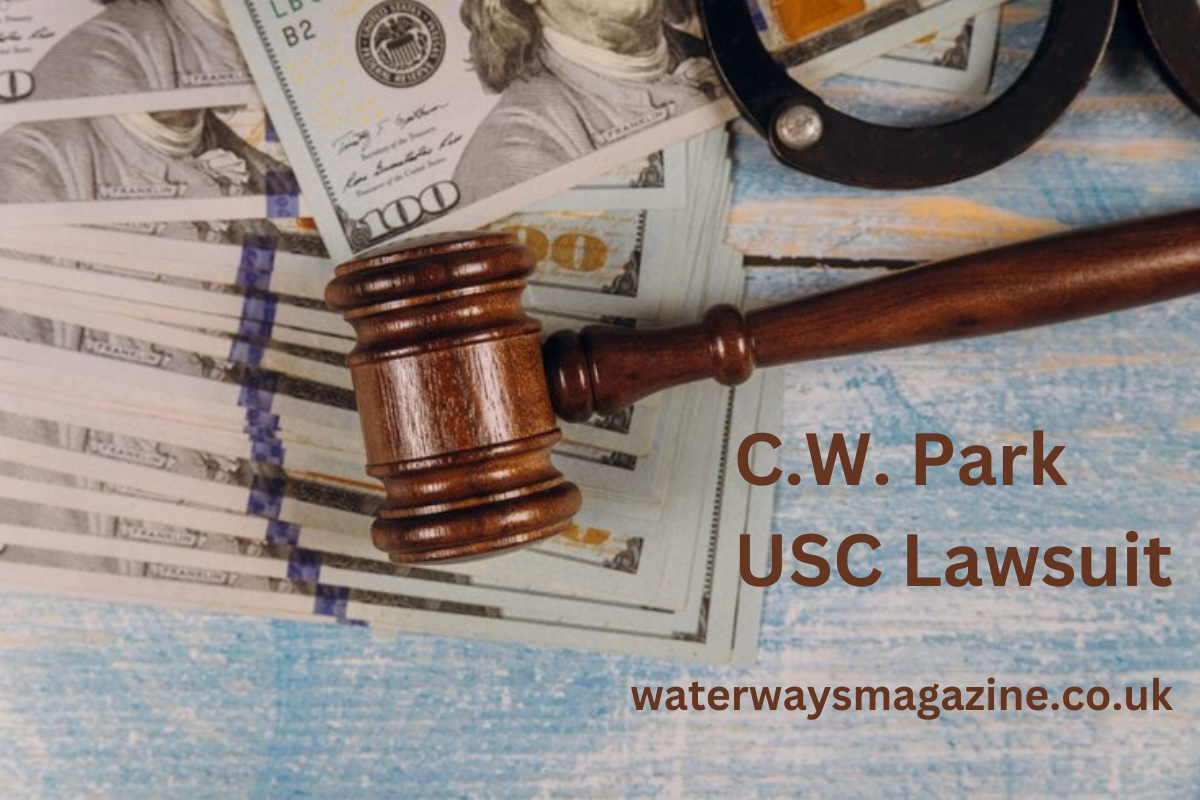Step into the intriguing world of higher education scandals and legal battles as we delve deep into the C.W. Park USC Lawsuit. Get ready to uncover the details, implications, and reactions surrounding this high-profile case that has sent shockwaves through the prestigious University of Southern California (USC). So grab a cup of coffee and let’s unravel all you need to know about this captivating controversy!
Background Information on C.W. Park and USC
C.W. Park, a former assistant dean at the University of Southern California (USC), was an integral part of the university’s administration. With years of experience in higher education, Park held a position that came with significant responsibilities and influence within USC’s academic community.
Known for his dedication to students’ success and commitment to fostering a positive learning environment, Park played a crucial role in shaping USC’s educational policies and programs. His presence on campus was felt by both faculty members and students alike.
On the other hand, USC, one of the most prestigious universities in the United States, has always strived for excellence in academics and research. With a rich history spanning over a century, USC has produced numerous successful alumni who have made significant contributions to society across various fields.
The intersection of C.W. Park’s involvement with USC brings about complex dynamics that have now come under scrutiny due to recent legal developments surrounding their relationship.
Also Read: Meet Dr. Zena Al-Adeeb: A Pioneer in the Field of Medicine
Details of the Lawsuit
The C.W. Park USC Lawsuit revolves around allegations of misconduct and discrimination against Dr. Park, a former professor at the university. The lawsuit claims that Park faced retaliation for speaking out against discriminatory practices within USC’s School of Cinematic Arts.
According to court documents, Dr. Park alleges that he was wrongfully terminated after raising concerns about bias in the hiring and promotion processes at the institution. The lawsuit also accuses USC officials of fostering a toxic work environment that silenced dissenting voices.
Amidst legal battles and public scrutiny, details continue to emerge regarding the specific incidents that led to this high-profile case. As both sides present their arguments in court, the outcome remains uncertain, leaving many wondering about the implications for academic freedom and accountability within higher education institutions like USC.
Stay tuned as developments unfold in this complex legal saga involving one of America’s most prestigious universities and a respected faculty member seeking justice.
Impact on USC and Its Reputation
The C.W. Park USC lawsuit has undoubtedly left a lasting impact on the university and its reputation. With allegations of misconduct and discrimination surfacing, USC finds itself under intense scrutiny from both the public and academic communities alike.
The negative spotlight cast upon USC due to this legal battle may tarnish its image as a prestigious institution dedicated to upholding values of integrity and fairness. The repercussions could potentially affect enrollment numbers, donor support, and overall trust in the university’s administration.
As one of the most well-known universities globally, any stain on USC’s reputation reverberates far beyond just its campus grounds. It underscores the importance for educational institutions to prioritize transparency, accountability, and ethical conduct in all their dealings to maintain credibility in today’s increasingly interconnected world.
Reactions from the Public and University Officials
The C.W. Park USC lawsuit has elicited a range of reactions from the public and university officials alike. Many people are shocked by the allegations brought against such a prestigious institution, while others express concern over the potential impact on USC’s reputation.
University officials have been put under immense pressure to address the situation transparently and take appropriate actions to uphold integrity within their academic community. Some have voiced support for C.W. Park, highlighting his contributions to the university, while others emphasize the importance of holding individuals accountable for any wrongdoing.
On social media platforms and in public forums, discussions continue to unfold as individuals share their thoughts on what this lawsuit means for higher education institutions as a whole. The spotlight is undeniably on USC, with both supporters and critics closely monitoring how they navigate through this challenging time.
Similar Cases in Higher Education
In recent years, higher education institutions have faced various legal challenges that have grabbed headlines and sparked debates. Cases involving allegations of misconduct, fraud, or discrimination have put universities under scrutiny. From lawsuits against faculty members to disputes over admissions practices, the landscape of legal battles in academia is diverse.
One notable case involved Harvard University’s affirmative action policies being challenged in court, highlighting the ongoing debate surrounding diversity and inclusion on campus. Similarly, scandals like the college admissions bribery scheme exposed at schools such as Stanford and Yale shed light on the pressures within the higher education system.
As these cases unfold, they not only impact the universities directly involved but also raise broader questions about ethics, accountability, and fairness within academia. The outcomes of these lawsuits can set important precedents for how colleges navigate complex legal issues in the future.
Conclusion:
As the C.W. Park USC Lawsuit unfolds, it serves as a stark reminder of the importance of upholding integrity and transparency in higher education institutions. The impact of such legal battles goes beyond just financial implications; it tarnishes reputations, erodes trust, and raises questions about the accountability of those in positions of power.
Moving forward, USC and other higher education institutions must prioritize ethical practices, rigorous oversight mechanisms, and swift actions against any form of misconduct to regain public trust. It is essential for universities to foster environments that promote academic excellence while ensuring fairness and equity for all stakeholders involved.
The C.W. Park USC Lawsuit stands as a cautionary tale for universities worldwide to uphold their commitment to integrity and accountability, ultimately shaping the future landscape of higher education institutions for generations to come.



